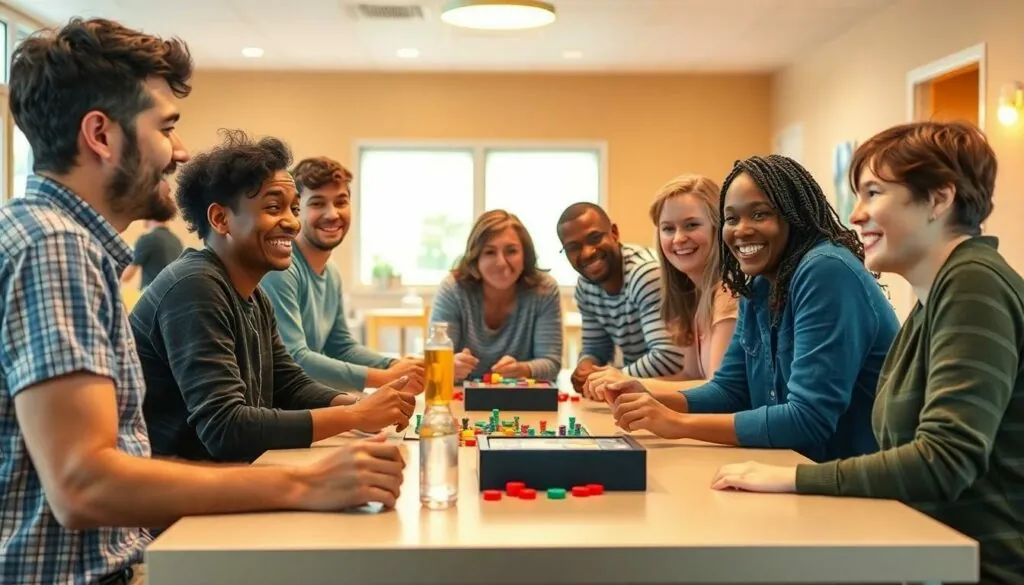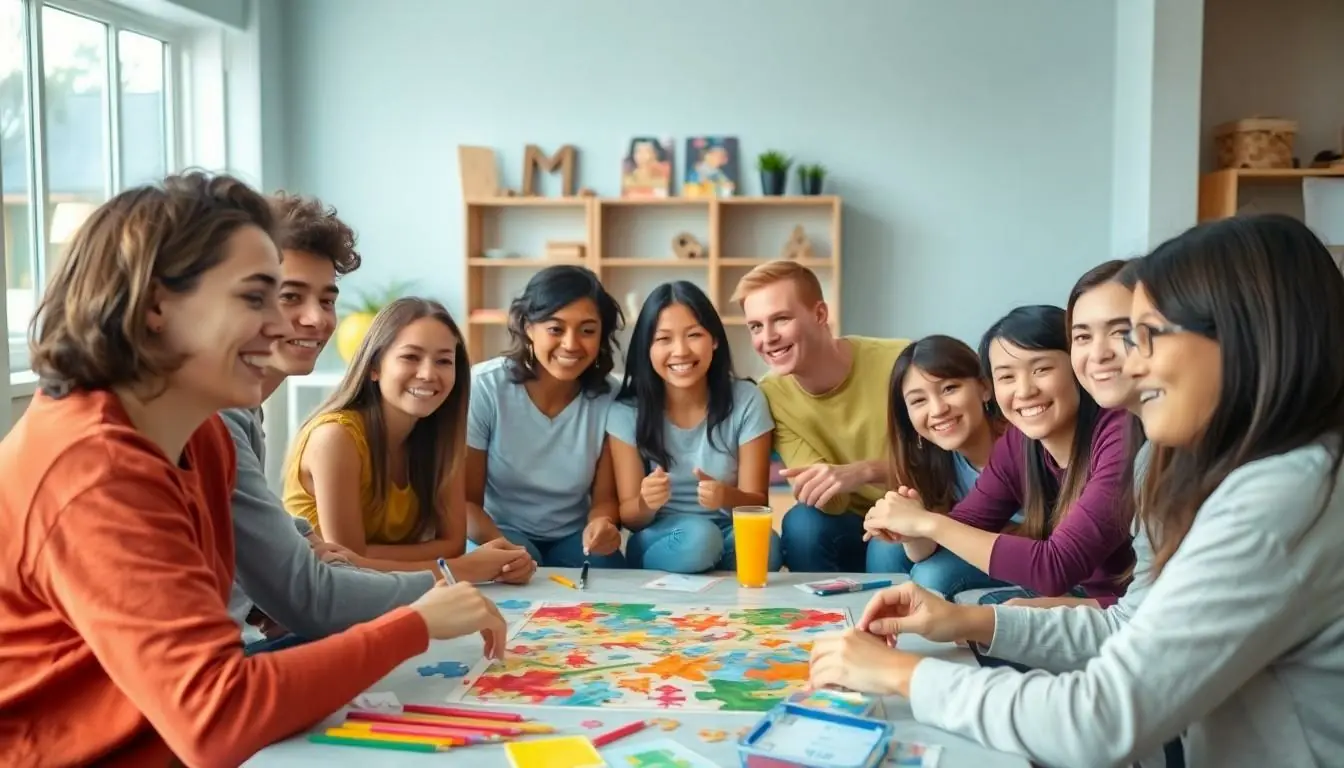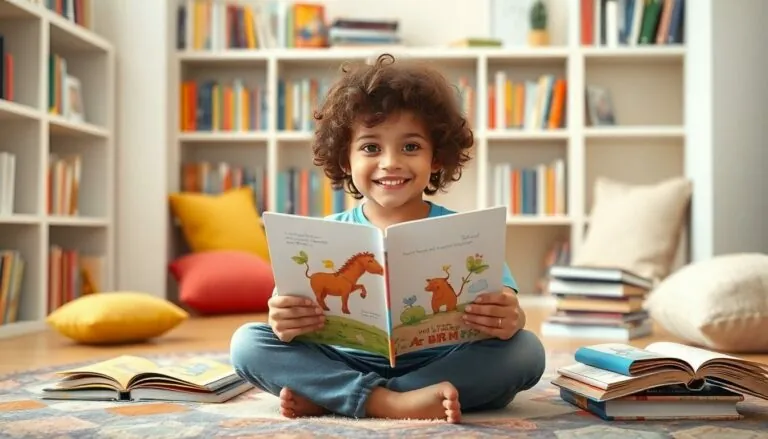Table of Contents
ToggleNavigating the world as a young adult with autism can feel like trying to find a unicorn in a haystack. It’s not just about fitting in; it’s about finding a place where one can be their true self, connect with others, and maybe even share a laugh or two. Social groups designed for young adults with autism offer just that—a chance to bond over shared experiences and interests in a supportive environment.
Imagine a space where the only requirement is to be yourself, where awkward silences are just opportunities for quirky jokes. These groups can be a lifeline, providing camaraderie, understanding, and friendship. Whether it’s game nights, art classes, or simply chatting over coffee, there’s something out there for everyone. So why not take the plunge? Finding the right social group might just lead to the best friendships of your life.
Understanding Autism in Young Adults
Autism spectrum disorder (ASD) affects young adults significantly, influencing their social interactions and daily experiences. Awareness of autism characteristics enables better support for individuals.
Characteristics of Autism
Autism exhibits a range of characteristics that can vary widely among individuals. Social communication challenges often manifest as difficulty in understanding social cues or engaging in reciprocal conversations. Many individuals display restricted interests or repetitive behaviors, concentrating intensely on specific topics or activities. Sensory sensitivities also play a role, with heightened responses to sounds, lights, or textures. Each characteristic contributes to a unique profile, making it essential to recognize the diverse experiences of those on the spectrum.
Challenges Faced by Young Adults
Young adults with autism encounter multiple challenges as they transition into independent living. Social isolation frequently arises from difficulties in forming friendships and maintaining relationships. Employment can become a hurdle due to limited job opportunities and misunderstandings surrounding workplace accommodations. Mental health concerns, such as anxiety and depression, often intersect with autism, further complicating daily life. Navigating these obstacles highlights the critical need for social groups that foster community and connection among peers.
Importance of Social Connection
Social connection is crucial for young adults with autism. Engaging in supportive environments helps foster meaningful relationships and enhances overall well-being.
Benefits of Social Groups
Social groups provide young adults with autism a chance to interact with peers who share similar experiences. These settings encourage open communication, allowing individuals to express themselves without judgment. Friendships often form through shared activities, such as game nights or art classes. Additionally, these groups can improve social skills, as members practice communication and collaboration in a safe space. Feeling supported helps young adults develop confidence and contributes to a sense of belonging within the community.
Impact on Mental Health
Participating in social groups significantly benefits mental health. Connections with peers reduce feelings of isolation, a common issue for young adults with autism. Increased social interaction can lower anxiety levels and promote resilience. Moreover, group participation often leads to improved self-esteem, as individuals gain social competencies. Various studies indicate that a strong support network contributes to better emotional regulation and coping strategies. Establishing friendships within these groups enhances overall emotional well-being, mitigating risks associated with depression and loneliness.
Finding Social Groups for Young Adults with Autism Near Me
Connecting with social groups for young adults with autism can make a significant difference in their lives. These groups offer supportive environments that enhance social interaction and personal growth.
Online Resources and Databases
Numerous online platforms exist to help locate social groups. Websites such as Meetup and Autism Society provide listings of local events and gatherings tailored for young adults with autism. These resources frequently feature filters to help narrow down activities based on interests and location. By utilizing these online databases, individuals can discover various options ranging from game nights to art classes. Social media groups also serve as great tools for finding peer connections and sharing experiences. Engaging with these online communities fosters a sense of belonging and allows users to stay updated on upcoming events.
Local Community Centers and Organizations
Local community centers often host programs specifically designed for young adults with autism. Many organizations offer structured social groups and recreational activities aimed at facilitating interaction among peers. These centers typically provide a safe and welcoming space for participants to build friendships. Often, specialized staff create inclusive environments to encourage engagement in various activities. Attending events organized by these centers can lead to meaningful connections while also improving social skills. Similar organizations, such as local chapters of autism advocacy groups, frequently collaborate to offer support and resources for young adults seeking social interaction.
Types of Social Groups Available
Various social groups cater specifically to young adults with autism, providing valuable opportunities for connection and engagement. These groups include support networks and recreational clubs that foster community.
Support Groups
Support groups play a critical role in connecting individuals facing similar challenges. They offer a safe space for sharing experiences, allowing for open discussions about personal struggles and successes. Participants often find solace in knowing they are not alone. These groups may cover various topics, including coping strategies and mental health resources. Regular meetings enhance emotional support through shared understanding and empathy.
Recreational and Hobby Groups
Recreational and hobby groups create an enjoyable environment for young adults to engage in shared interests. Activities range from art classes and gaming nights to sports and outdoor adventures. Participants can explore new hobbies while forming friendships in a relaxed setting. These groups promote teamwork and collaboration, strengthening social skills. Having fun together helps build lasting bonds among members, making the experience both enjoyable and beneficial for personal growth.
How to Choose the Right Group
Choosing the right social group for young adults with autism requires careful consideration of several factors. Identifying personal interests plays a critical role in finding a suitable environment.
Consider Personal Interests
Engagement in activities that resonate with individual interests fosters a sense of belonging. Evaluate hobbies, sports, or artistic pursuits; these provide common ground for connection. Joining groups aligned with these passions often leads to deeper interactions and friendships. For instance, a love for art may find its match in a creative workshop group. Individuals may experience heightened enthusiasm and motivation in settings where they share interests with peers. Participation in enjoyable activities encourages collaboration and strengthens social bonds.
Evaluate Group Dynamics
Group dynamics influence the overall experience within a social setting. Observe how members interact; positive communication cultivates a welcoming atmosphere. Leadership styles and member engagement levels also contribute to group effectiveness. Consider the group’s size; larger groups may offer diverse connections, while smaller ones can foster intimacy. Pay attention to inclusivity; environments that celebrate differences encourage authentic expression. Request feedback from current members to gauge satisfaction and support within the group. A good fit emerges when individuals feel valued and accepted by their peers.
Conclusion
Finding the right social group can significantly enhance the lives of young adults with autism. These communities not only provide a platform for connection but also promote personal growth and emotional well-being. By participating in activities that align with their interests, individuals can forge meaningful relationships and develop essential social skills.
Engaging with peers who understand their experiences fosters a sense of belonging and reduces feelings of isolation. As young adults navigate their unique challenges, the support offered by these groups can be invaluable. Exploring local resources and evaluating group dynamics ensures that individuals find the right fit for their needs. Embracing these opportunities is a step toward building a fulfilling and connected life.








